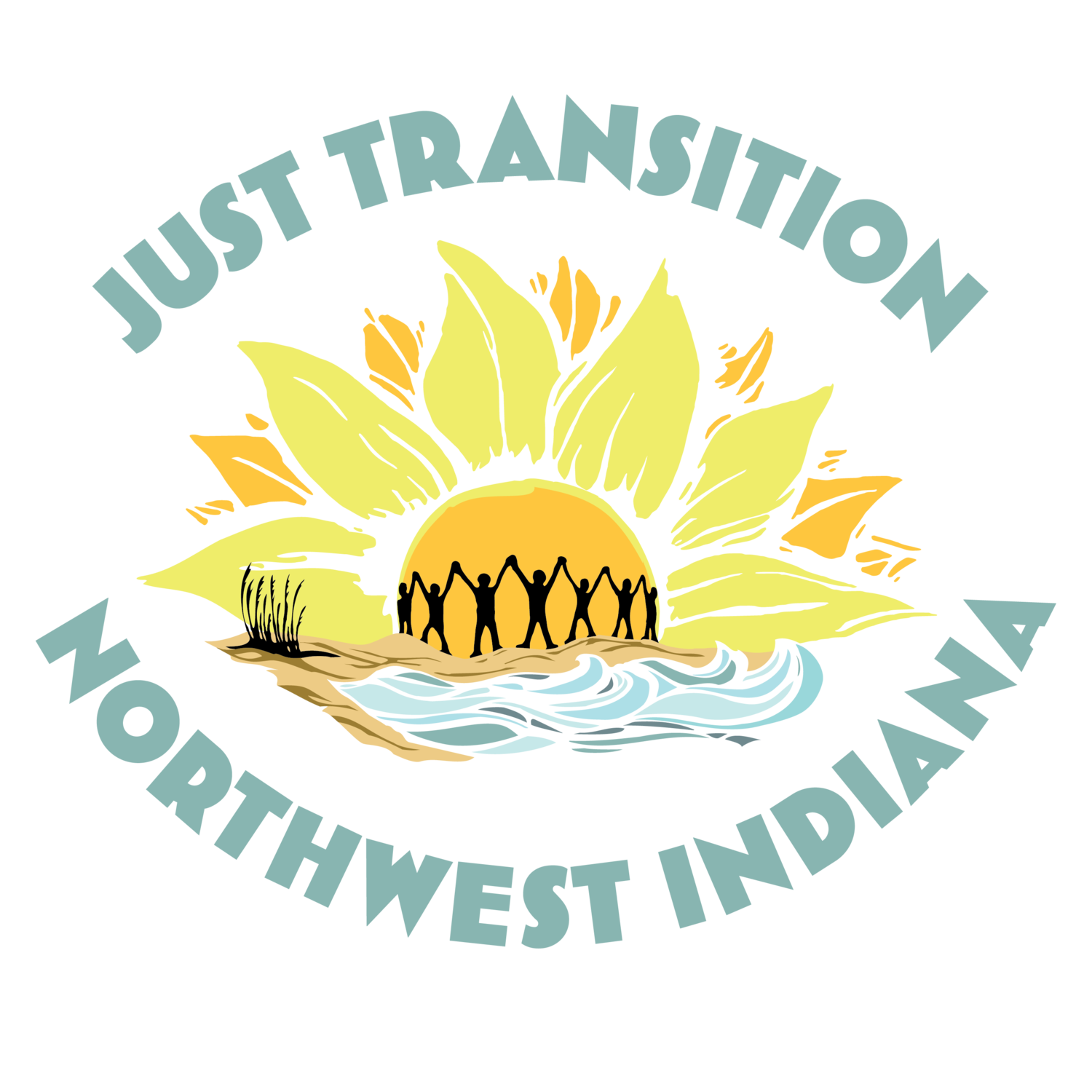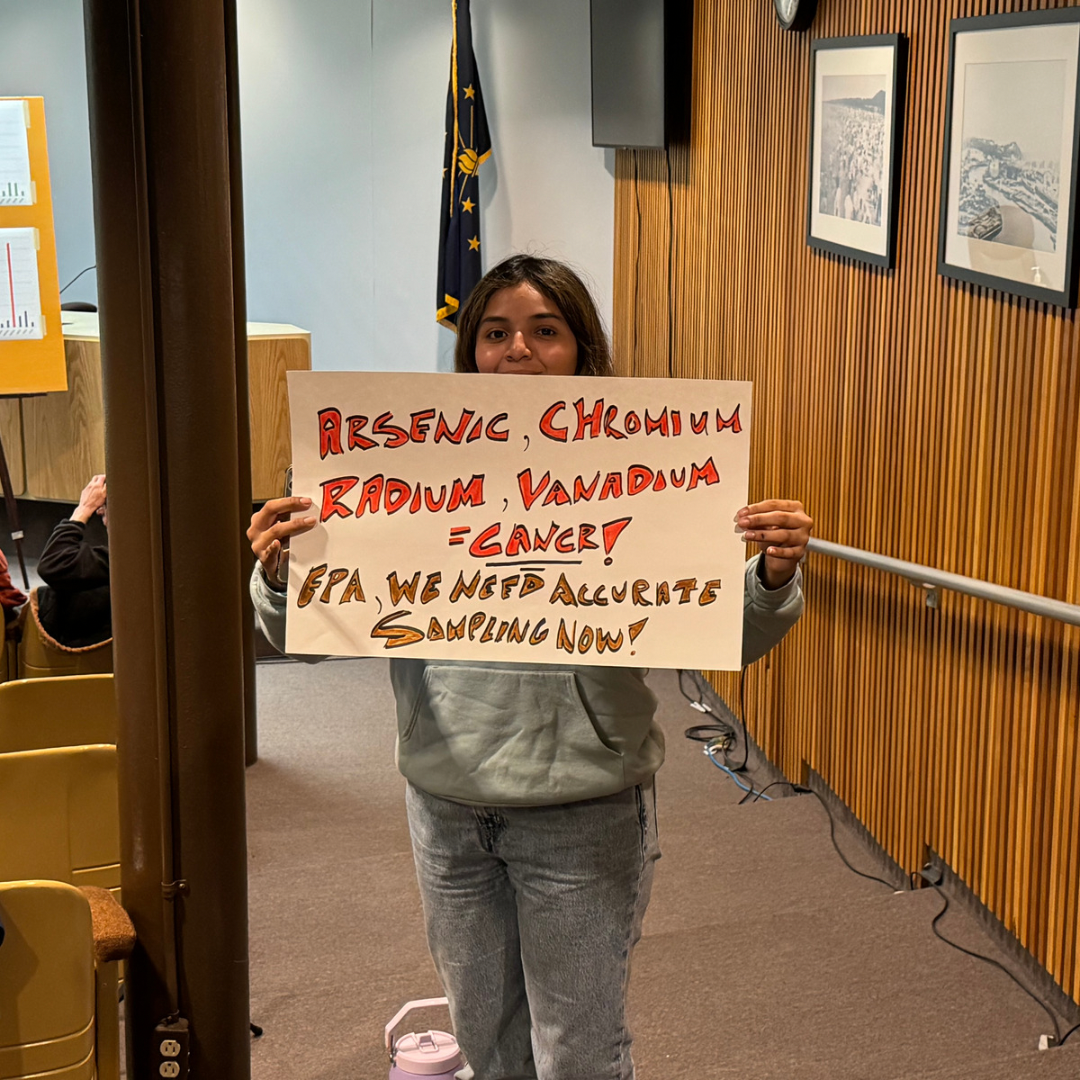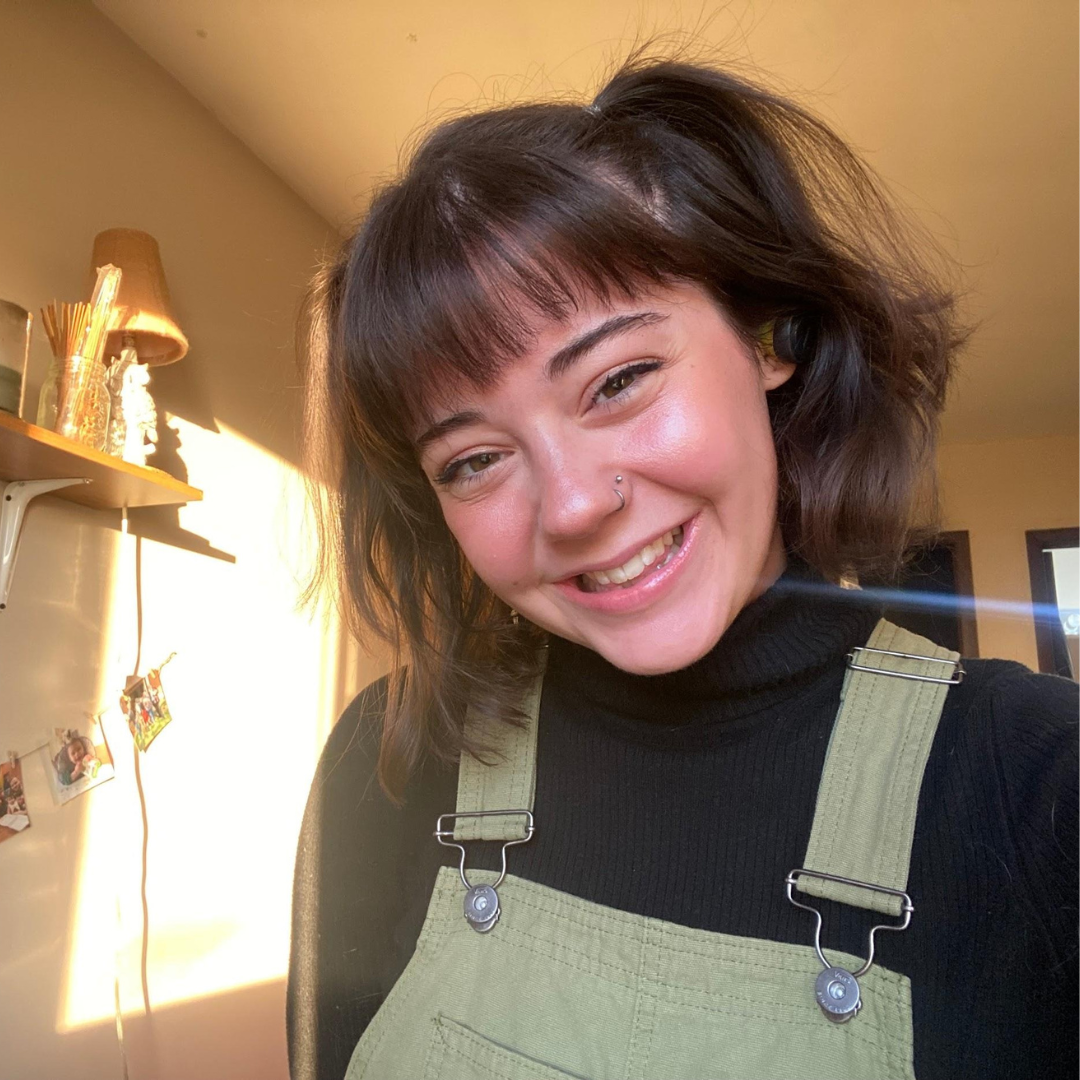The Interconnection of Social Work and Environmental Justice
PNW Social Work Students Reflect
March is Social Work Month and Women’s History Month! Our staff here at Just Transition Northwest Indiana (JTNWI) is lucky to have built a close partnership with the Social Work Club at Purdue University Northwest (PNW). This has included welcoming our very first PNW outreach intern, Malaska Hernandez, who has been with our team since August 2023.
Over the past month, we have worked with a group of 7 powerful young women who are preparing themselves to be social workers. Social work is a profession dedicated to assisting the most vulnerable among us, those disproportionately affected by environmental issues, playing an essential role in environmental justice by providing critical resources through education, advocacy, community organizing, and research. Through our continued collaboration, we asked the students to reflect on the symbiotic relationship between social work and environmental justice. Here are their stories:
Meet Malaska!
PNW Senior Social Work Student and JTNWI Outreach Intern
I work on a food truck throughout the summer. One day, I served food to workers at the Gary steel mill. I remember this day as if it were yesterday. It was a 5-hour shift, but I could tell my health had suffered within seconds of entering the steel mill. The atmosphere had to be loaded with harmful substances. The stench of chemicals in the air, combined with the heat of the day, made me feel sick to my stomach, gave me a headache, and left me feeling tired. I could feel my lungs weakening with each breath I took. This was my experience as someone who was not born or raised in the area.
People who are born near industry are exposed to harmful chemicals and suffer the cruel repercussions of inhaling such toxins regularly. My boyfriend, for instance, was a victim of this injustice. He lived across from the steel mills from birth. He was diagnosed with bronchitis, asthma, and pneumonia at the age of fourteen. His doctor even told him "his air capacity was as low as a 72-year-old man." It wasn't until he moved to Highland that, suddenly, all his health conditions began to improve. My partner isn't alone in his story. Communities across Northwest Indiana share similar experiences. Our loved ones, friends, and children are exposed to the same harmful air quality that nearly took his life a few years ago. As social workers, we are in a position to empower our neighbors to speak out against injustices like industrial pollution. I'm passionate about being a social worker because our community and land need healing. Communities of color who have been forced to live, work, and play in hazardous waste and toxic air deserve justice!
Meet Kayla!
PNW Senior Social Work Student
In East Chicago, Indiana, where towering steel mills dominate the skyline, life is a delicate balance between perseverance and sacrifice. My mother, a dedicated teacher in East Chicago, faces the harsh reality of living in a community where the air quality is a constant concern. The billowing smokestacks and industrial flares exacerbate her asthma, casting a shadow of worry over her health and well-being. As I pursue my education at PNW, the specter of pollution looms large. The January-February pollution incidents at BP Whiting served as a stark reminder of the fragility of our environment and the toll it takes on our loved ones. Witnessing my mother struggle with daily breathing treatments before and after work underscores the urgent need for change. In a city defined by its industrial legacy, we deserve clean air as a basic human right. Our sacrifices should not include compromising our health and longevity. As a social worker, I believe it's time for action, for our voices to be heard, and for East Chicago to reclaim its place as a community where clean air is not just a dream but a reality where we can all breathe freely.
Meet Tiffany!
PNW Junior Social Work Student
I grew up in Laporte, Indiana, which is just 20 minutes away from Michigan City. I remember driving to the beach and the zoo with my mom growing up and asking my mom, “Why does that one area of the sky have so many dark clouds in it?” Little did I know that it was the pollution from the NIPSCO coal-burning plant. I could remember the air being cloudy and hard to see at times. It wasn’t until later that I realized that it was pollution from the smokestacks. What drew me to JTNWI were their goals and mission for the work that they are doing. I believe that spreading environmental awareness to our surrounding communities is essential in social work, especially since we are considered a sacrifice zone, and there is not enough emphasis on that.
Meet Kassidy!
PNW Junior Social Work Student
As a person who lives minutes near the BP Whiting refinery, I have seen the effects of air pollution in my community when, earlier this year, BP released so much toxic gas into the air that the sky turned gray and orange. I decided to stay inside that day, but many community members could not do so due to work or other obligations. After learning more about the situation and the number of individuals who went to the hospital due to not being able to breathe or feeling sick due to the toxic smell, it saddens me to think that we still allow this to happen just because BP pays a fine every month. I chose to work with JTNWI because the community needs support to stop toxic waste and air pollution. People deserve to be able to walk outside and not have polluted air to breathe in. Advocating for these communities and creating awareness around pollution that has been swept under the rug for decades is essential to me as a social worker.
Meet Brielle!
PNW Junior Social Work Student
Growing up, I have fond memories of going to the Indiana Dunes with my family. After learning about the coal ash dump site [at NIPSCO’s plant] near there, my perspective changed. Before, I had no idea about the detrimental impacts that coal ash waste has on Lake Michigan and our environment. We deserve to have a clean, safe lake to make those special memories. Promoting environmental justice is an important part of my advocacy and social work journey. Environmental justice is something I wasn’t too familiar with before, but JTNWI allowed me to explore the topic. Now, I’m able to have new perspectives and conversations on not only the environment of Northwest Indiana but as a whole, shaping my future as a social worker.
Meet Cynthia!
PNW Junior Social Work Student
Over the past few months, my community and I suffered from poor air quality because of the BP Whiting refinery. This resulted in people in my community having health issues as well as having power shut off due to the malfunction at the refinery. Because of this, many in our community evacuated in order to make sure they and their families didn’t get injured, sick, or worse. This was a scary time because it happened around midnight. Before this occurred, earlier in the day, the air was smokey and hard to breathe in, and we struggled to be outside. From this experience, as a social worker, I realized how important it is to care about our environment and bring communities together to create ways to spread awareness. JTNWI has given me the opportunity to promote environmental justice in my community and advocate not only for myself but for the community as well. I am a firm believer that we all deserve to live in a healthy environment where we can grow and thrive. It is important for me to work with JTNWI to advocate for a clean, healthy environment for future generations.
We applaud these future social workers for their desire to work with vulnerable populations while also protecting the environment, climate, and future generations. Their stories describe their firsthand experiences with the unfair distribution of environmental burdens and the consequences for community health. Help us celebrate Social Work and Women’s History Month by joining us in advocating for a just transition to a regenerative economy and sharing this blog with your friends and loved ones.







